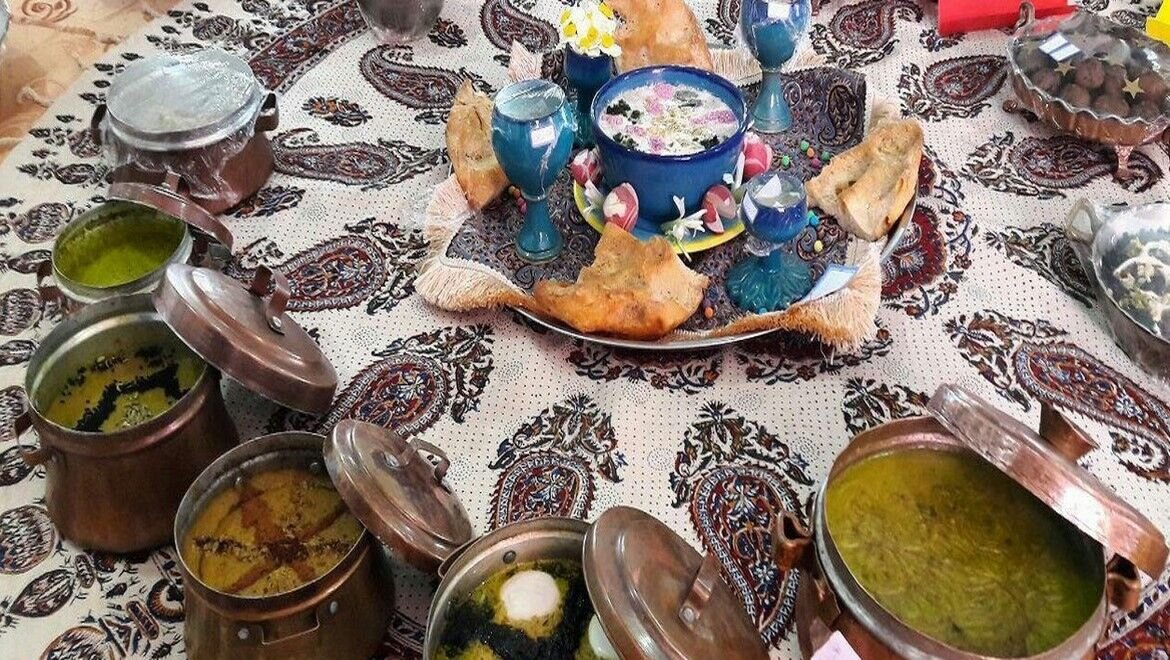Culinary delights take center stage at Falak-ol-Aflak fortress in Khorramabad

TEHRAN – On Thursday, a ten-day culinary festival was kicked off in a cozy garden situated adjacent to the iconic Falak-ol-Aflak Fortress in Khorramabad, the capital of Lorestan province.
Culinary delights along with stalls for regional handicrafts and superiors greet visitors as they step into the festival grounds, where a myriad of regional dishes is proudly on display.
Local chefs, adorned in traditional attire, skillfully prepare and present a wide array of dishes, each telling a story of the region's unique flavors. Ash-e Reshteh, a hearty noodle soup, shares the spotlight with Dizi, a slow-cooked stew, reflecting the meticulous attention to traditional cooking methods that have been passed down through generations.
The beverage section of the festival is equally diverse, featuring traditional teas, aromatic herbal infusions, and refreshing fruit juices. Attendees can savor the unique flavors of local beverages, such as Sekanjabin, a sweet and sour mint drink, and Doogh, a refreshing yogurt-based concoction.
In addition to the culinary delights, the festival also celebrates the craft skills and artistic flair of the region. Artisans from across Lorestan showcase their talents, with intricate handwoven carpets, pottery, and traditional metalwork adorning the festival grounds. Visitors have the opportunity to explore and purchase unique handcrafted souvenirs, providing a tangible piece of Lorestan's cultural heritage to take home.
No Persian meal is complete without an abundance of herbs. Every table is usually set with Sabzi-Khordan, a basket of fresh herbs, radishes, and scallions, which are eaten rawly and by the handful. Persian cuisine is, above all, about balance — of tastes and flavors, textures and temperatures.
Iranian cuisine delicately combines characteristics and peculiarities of Near and West Asia, India, and East Asia due to Iran’s checkered antiquity and the country's location as a hub of trade between East and West on the historic Silk Roads. Similarly, the Persians influenced many cuisines as part of their policy of expansion.
AM
